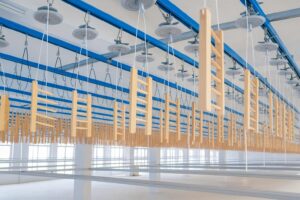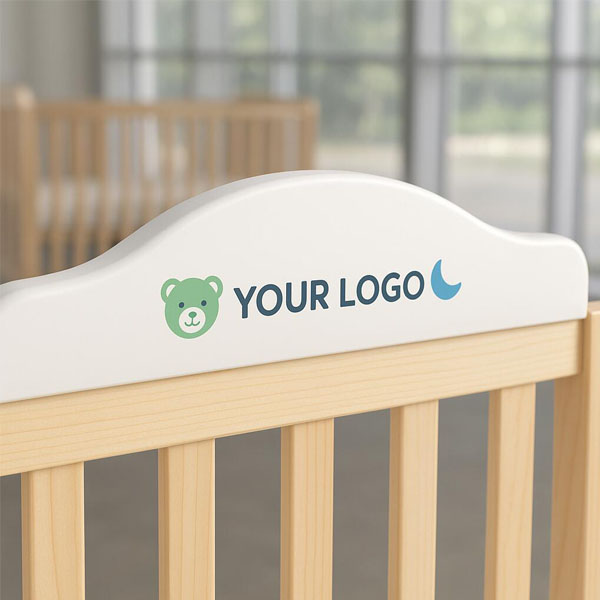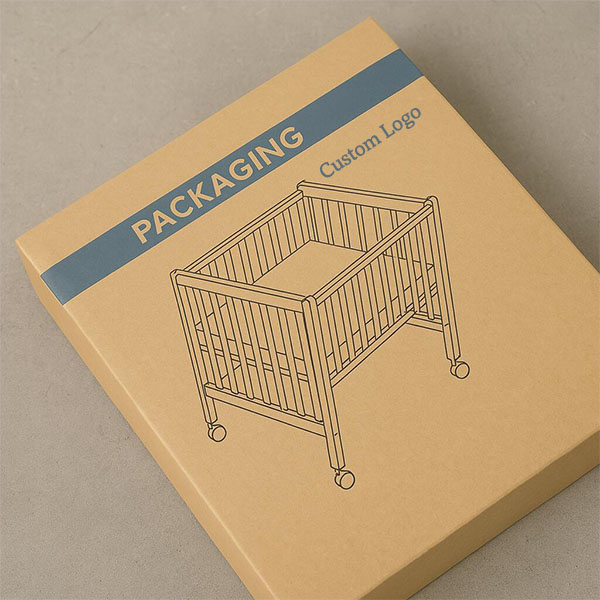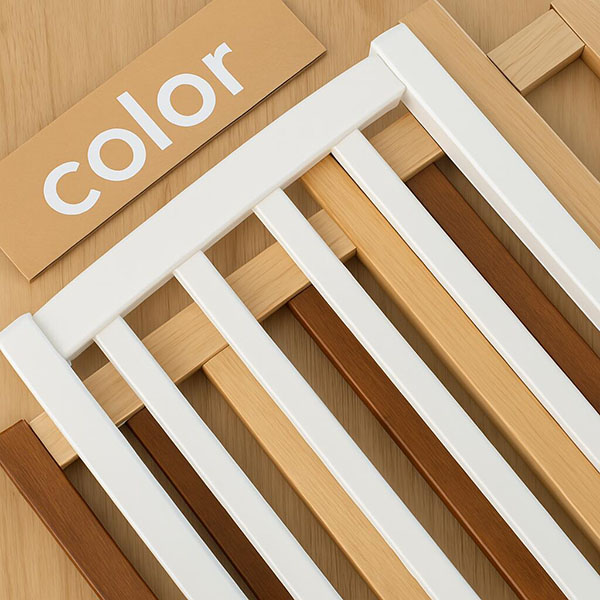Modern Crib Buying Guide: What to Know Before Shopping
Choosing the perfect crib for your baby is one of the most important decisions you’ll make before your little one arrives. Not only is it essential for your baby’s safety and comfort, but it also needs to complement your nursery decor. With so many options on the market, here’s a guide to help you navigate through the features and options to find the perfect crib for your baby.
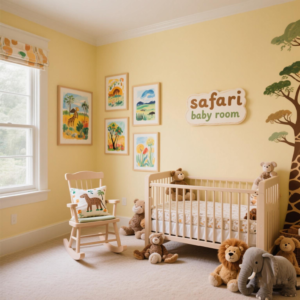
1. Safety Standards: The Most Important Factor
Safety should be your top priority when buying a crib. Make sure the crib meets or exceeds safety standards set by regulatory bodies.
- Certifications: Look for cribs certified by the Consumer Product Safety Commission (CPSC) and the Juvenile Products Manufacturers Association (JPMA). These certifications ensure that the crib meets rigorous safety standards.
- Slat Spacing: The slats should be no more than 2 3/8 inches apart to prevent your baby from getting stuck or injured.
- Mattress Fit: The crib mattress should fit snugly within the crib, leaving no more than two fingers’ width between the mattress and the sides of the crib. This prevents any chance of your baby getting stuck in gaps.
2. Types of Cribs
There are various types of cribs, each with its unique features. Here’s a breakdown of the most common styles:
- Standard Crib: The classic, fixed-side crib with adjustable mattress heights. It provides a secure sleeping environment but doesn’t transition into a bed.
- Convertible Crib: A versatile option that can transform into a toddler bed, daybed, and sometimes even a full-sized bed as your child grows. This can be a cost-effective long-term solution.
- Mini Crib: Smaller than a standard crib, mini cribs are perfect for smaller spaces, or for parents who need a second crib for travel or a small nursery.
- Round Crib: A unique and stylish option, these cribs are often a statement piece but may be less common and harder to find accessories for.
- Travel Crib: Lightweight and portable, these cribs are great for traveling or temporary use. They are easy to set up and fold down, making them convenient for on-the-go parents.
3. Materials: Wood, Metal, or Other?
The material of your crib affects its durability, aesthetic, and even the safety of your baby.
- Wood Cribs: Solid wood cribs are sturdy and traditional. Hardwood options like oak, maple, or birch are durable and long-lasting. They can be finished in various non-toxic paints and stains.
- Metal Cribs: These cribs often have a more modern or industrial look and can be very durable. Be sure to check that the metal is rust-resistant and free of harmful coatings.
- Non-toxic Finishes: Regardless of the material, choose a crib with non-toxic finishes, paints, and stains. Babies are naturally curious, so ensuring no harmful chemicals are present is key.
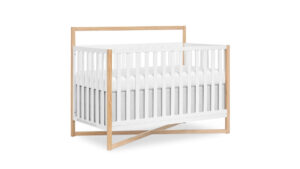
4. Mattress Size and Comfort
A comfortable mattress is essential for your baby’s sleep. Many cribs come with their own mattresses, but you might prefer to choose one separately for added comfort.
- Standard Mattress Size: Most cribs use a standard crib mattress (28 inches by 52 inches). When shopping for a mattress, be sure it fits snugly inside the crib with no gaps.
- Firmness: A firm mattress is recommended for newborns to reduce the risk of suffocation and Sudden Infant Death Syndrome (SIDS). It should feel firm when pressed, without too much give.
- Breathability: Some mattresses come with breathable covers or materials that allow air circulation, reducing the risk of overheating.
5. Adjustable Mattress Height
Most modern cribs come with an adjustable mattress height, which allows you to set the mattress higher for a newborn and lower it as your baby grows and starts to stand. This feature is key for both safety and convenience.
- Higher Position: For newborns, you’ll want the mattress in its highest setting, so you can easily lift your baby in and out.
- Lower Position: As your baby grows and starts to sit, kneel, or stand, you’ll want to lower the mattress to prevent climbing out.
6. Style and Design
While safety and comfort are the most important aspects, the design and style of the crib are also important to match your nursery’s aesthetic.
- Modern Cribs: Sleek lines, minimalistic designs, and neutral colors like white, gray, or natural wood finishes are popular in modern cribs.
- Traditional Cribs: For a more classic look, traditional cribs feature detailed carvings, spindles, and a more ornate style.
- Mid-Century or Scandinavian Styles: These cribs often feature clean lines, light wood finishes, and simple design elements that suit minimalist or contemporary nurseries.
7. Ease of Use: Assembly and Features
Consider how easy it is to assemble the crib and whether it has any additional features that would make your life easier.
- Tool-Free Assembly: Some cribs come with a tool-free assembly feature, which can make putting it together much simpler.
- Drop-Side Cribs: These have a side that lowers, making it easier for parents to lift their baby in and out. However, drop-side cribs have been banned in many places due to safety concerns, so it’s best to choose a non-drop-side crib.
- Rolling Wheels: Some cribs come with rolling wheels, which can be handy for moving the crib around the room, but ensure the wheels have a locking mechanism for safety.
8. Budget Considerations
Cribs can range in price from a couple of hundred dollars to over a thousand, depending on the brand, material, and features. Keep these factors in mind when setting your budget:
- Quality vs. Cost: While you may be tempted to go for a budget crib, remember that quality and safety should come first. A well-built crib may be more expensive upfront but can save you money in the long run, especially if it’s convertible.
- Sales and Discounts: Check for sales or discounts, especially for larger brands that might offer seasonal promotions.
9. Longevity and Value
Consider how long you plan to use the crib. If you want it to last for several years, a convertible crib may be a good investment. If you’re looking for a short-term solution, a mini crib or standard crib might be sufficient.
Conclusion
Choosing a crib is a significant decision, as it’s not only about comfort and aesthetics but also about ensuring your baby’s safety and well-being. By considering safety standards, materials, mattress options, and your own personal preferences, you can make an informed decision that will provide both you and your baby with peace of mind.
If you have any specific questions or need recommendations for particular cribs, feel free to ask!

